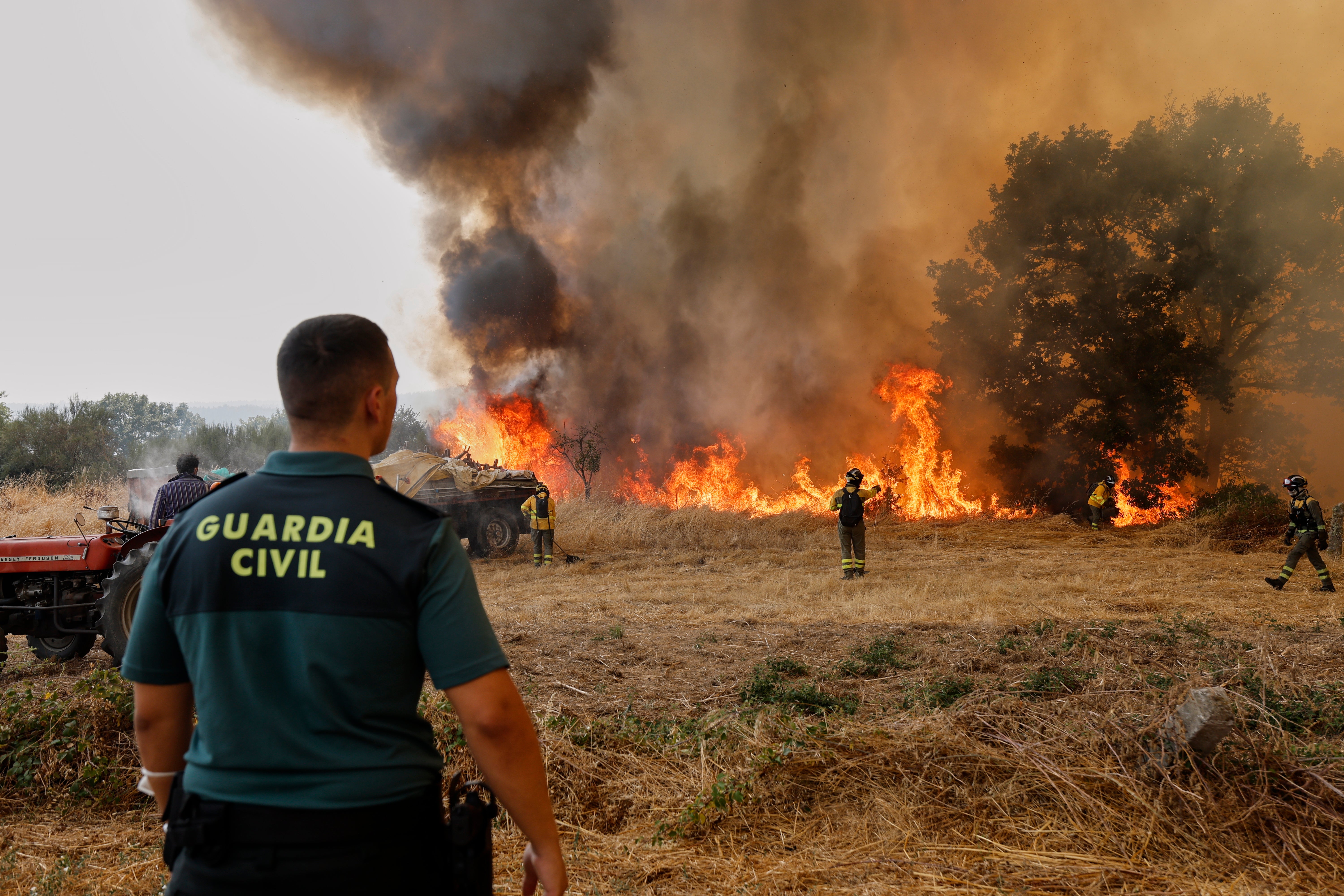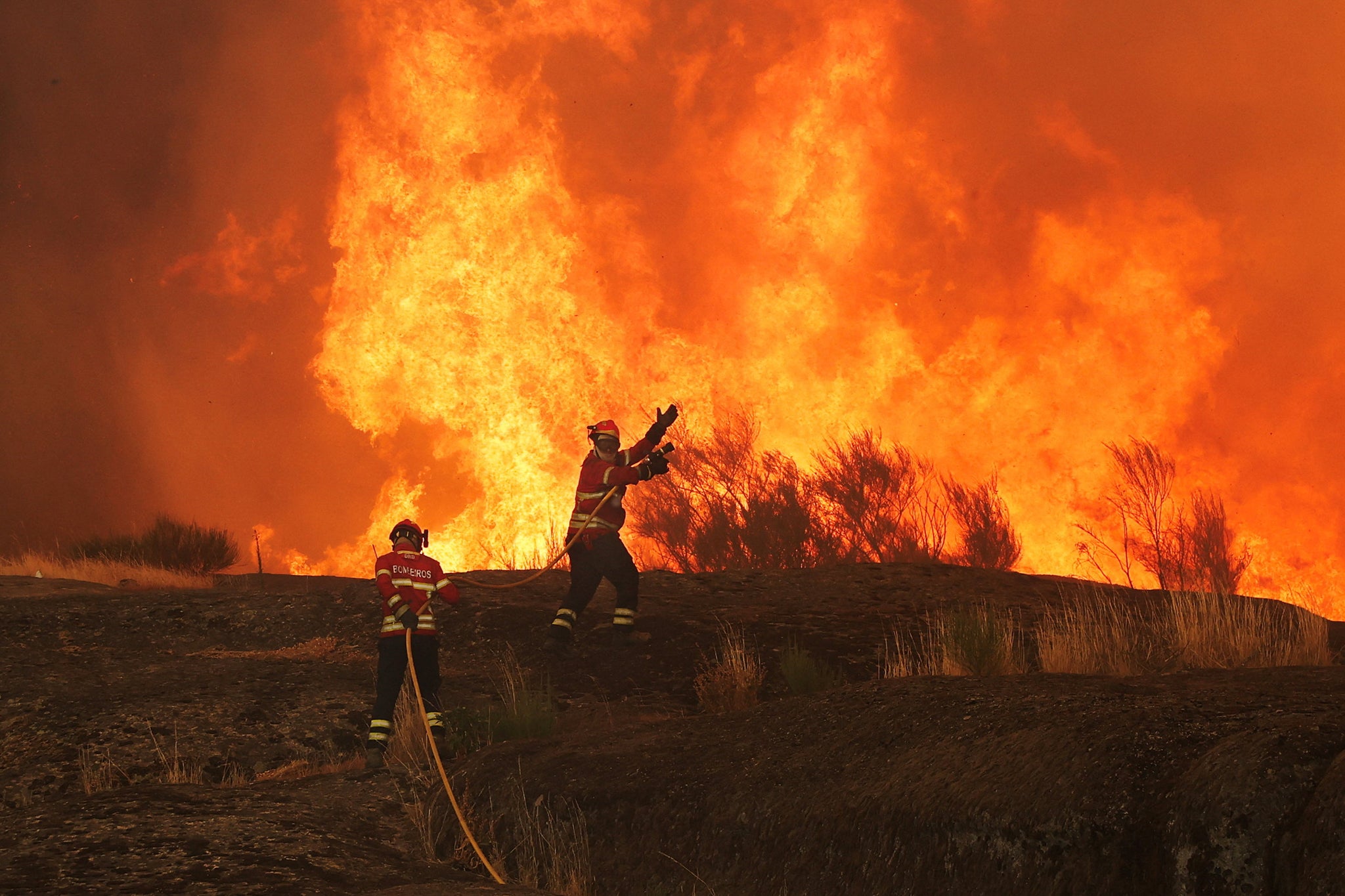Spain is deploying an additional 500 soldiers to combat raging wildfires, Prime Minister Pedro Sánchez announced on Sunday, as the country grapples with a prolonged period of scorching weather. The new deployment adds to the more than 1,400 troops already battling blazes across parched woodland.
Authorities are particularly struggling to contain forest fires in the northwestern Galicia region, where 12 major wildfires are currently active near the city of Ourense. Alfonso Rueda, head of the Galician regional government, confirmed the severity of the situation during a joint press conference with Mr Sánchez. The country is also awaiting promised aircraft reinforcements from other European nations to aid the firefighting efforts.
“Homes are still under threat so we have lockdowns in place and are carrying out evacuations,” Rueda said. Galicia has been battling the spreading flames for more than a week.
Temperatures in Spain could reach 45 degrees Celsius (113 degrees Fahrenheit) in some areas on Sunday, the Spanish national weather agency AEMET said. On Saturday, the maximum temperature was 44.7 degrees Celsius (112.46 degrees Fahrenheit) in the southern city of Cordoba, it said.

“This Sunday, when extraordinarily high temperatures are expected, the danger of wildfires is extreme in most of the country,” AEMET said on the social platform X.
The fires in Spain this year have burned 158,000 hectares (390,000 acres), according to the European Union’s European Forest Fire Information System. That is an area roughly as big as metropolitan London.
Europe has been warming twice as fast as the global average since the 1980s, according to the EU’s Copernicus Climate Change Service. Scientists say that climate change is exacerbating the frequency and intensity of heat and dryness in parts of Europe, making the region more vulnerable to wildfires.
Spain was expecting the arrival of two Dutch water-dumping planes that were to join aircraft from France and Italy already helping Spanish authorities under a European cooperation agreement.
Firefighters from other countries are also expected to arrive in the region in coming days, Spain’s Civil Protection Agency chief Virginia Barcones told public broadcaster RTVE.
National rail operator Renfe said it suspended Madrid-Galicia high-speed train services scheduled for Sunday due to the fires.
Galician authorities advised people to wear face masks and limit their time spent outdoors to avoid inhaling smoke and ash.
Portugal is set for cooler weather in coming days after a spate of severe woodland fires. A national state of alert due to wildfires was enacted Aug. 2 and was due to end Sunday, a day before two Swedish firefighting planes were to arrive.

As in Spain, Portugal’s resources have been stretched. On Sunday, more than 4,000 firefighters and more than 1,300 vehicles were deployed, as well as 17 aircraft, the country’s Civil Protection Agency said.
The scorched area of forest in Portugal so far this year is 17 times higher than in 2024, at around 139,000 hectares, according to preliminary calculations by the Institute for the Conservation of Nature and Forests, a government body.
Greece, Bulgaria, Montenegro and Albania have also requested help from the EU’s firefighting force in recent days to deal with forest fires. The force has already been activated as many times this year as in all of last year’s summer fire season.





.jpg?trim=0,0,0,0&width=1200&height=800&crop=1200:800)

